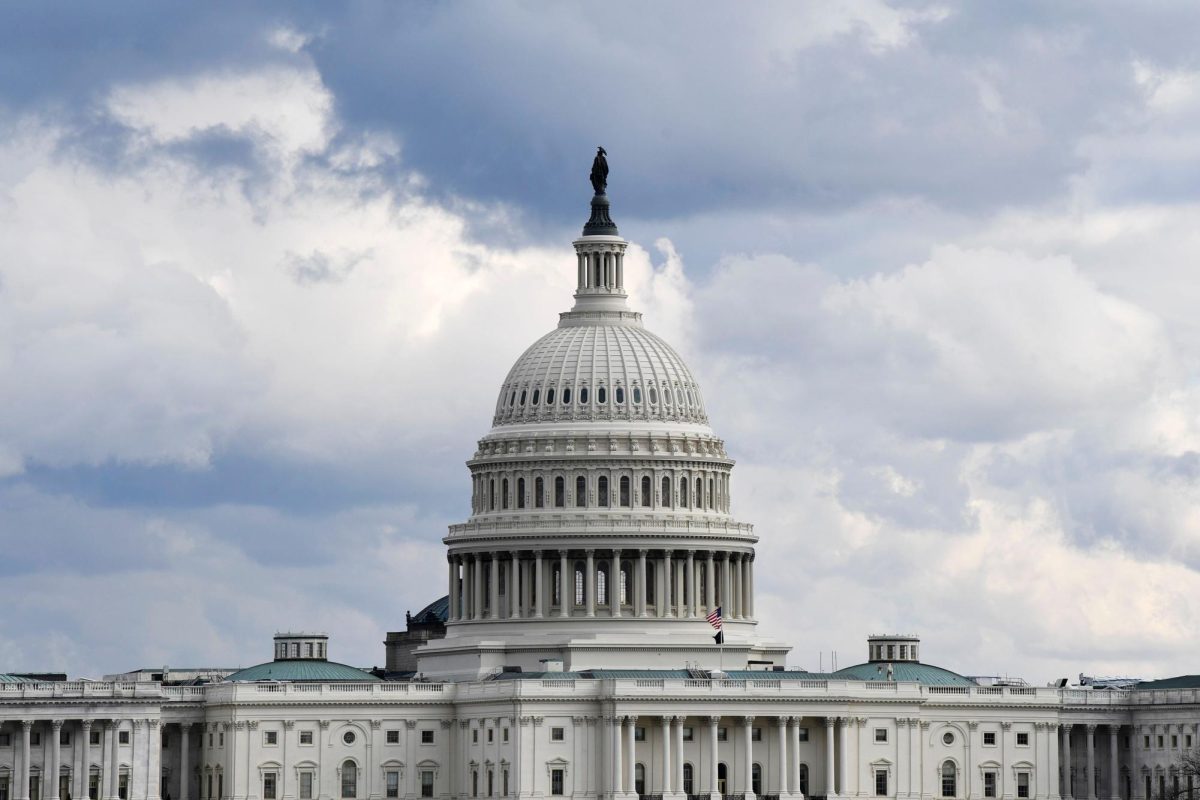Every year, the U.S. House and the Senate must negotiate on a federal government budget and pass a single version onto the president for approval. Since the government’s fiscal year restarts on Oct. 1, if a budget agreement is not reached by Sept. 30, the government must shut down, since there is technically no money to pay government workers.
In this case, the Senate was unable to reach the 60 votes needed to pass the bill, as the Democrats overwhelmingly voted against the budget due to some of its contents. The Democrats requested further negotiation on the cuts to Medicaid, the expiration of Affordable Care Act (ACA) subsidies that make health insurance more accessible and general cuts to federal agencies present in the proposed budget.
The threat of the aforementioned health programs being federally cut has had Americans worried for months. In fact, these cuts were a major target of protest for attendees at the nationwide “No Kings” rallies back in June of this year. About one-in-five Americans are covered by Medicaid and about 24 million uninsured Americans rely on the ACA to purchase health plans.
Senate Republicans have refused negotiation on the health insurance subsidies, with Republican House Speaker Mike Johnson saying, “There’s nothing to negotiate. There’s nothing I can give.”
Thursday, Oct. 1, at 12 a.m., the federal government shut down for the first time since 2019.
Senate Minority Leader Chuck Schumer said, “We hope they sit down with us and talk…our guarantee is to the American people that we’re going to fight as hard as we can for their health care. Plain and simple.”
The House passed a temporary remedy that would allow federal funding until Nov. 21, though in the Senate, Republicans would need more Democratic support for it to pass.
With the shutdown lasting over ten days and counting, it has affected–and will continue to affect–a variety of Americans.
The Congressional Budget Office (CBO) estimated that 750,000 federal workers would be furloughed, or put on unpaid leave, each day of the shutdown. However, The White House Office of Management and Budget claimed that a shutdown would allow the Trump administration to issue “reduction in force” (RIF) notices, or effectively layoff, federal employees of programs which aren’t “consistent with the president’s priorities.”
President Donald Trump, who was also in office for the previous two government shutdowns, said, “The Democrats want to shut it down, and so when you shut it down, you have to do layoffs…so we’d be laying off a lot of people that are going to be very affected. And they’re Democrats, they’re going to be Democrats.”
Further, he said, “We’re only cutting Democrat programs, I hate to tell you, but we are cutting Democrat programs…we will be cutting some very popular Democrat programs that aren’t popular with Republicans, frankly.”
On Oct. 10, the threatened layoffs became actualized for the following government agencies: The Department of the Interior (DOI), the Department of Homeland Security, the Department of the Treasury, the Environmental Protection Agency (EPA), the Department of Commerce (DOC), the Department of Education, the Department of Energy, the Department of Health and Human Services (HHS) and the Department of Housing and Urban Development (HUD).
In contrast, Immigration and Customs Enforcement (ICE) has been largely unaffected, as its functions are considered “essential.”
The Supplemental Nutrition Program for Women, Infants and Children (WIC) food program, which about 7 million mothers and children rely on, will soon run out of funds to continue normal operation. The Supplemental Nutrition Assistance Program (SNAP), which assisted 41 million Americans in 2024, will similarly run into issues should the shutdown last past Oct.
The U.S. Postal Service (USPS) will remain open, and while many of the Department of Education employees have been furloughed, student financial aid programs will not be impacted. Social Security recipients will also continue getting payments.
While the causes of the shutdown are more nuanced than a single party’s actions, a poll from YouGov discovered that 41% of Americans blame the Republicans, while 30% blame the Democrats in Congress. 41% of independent voters also place blame on the Republicans.
Anyone who visits the official White House website would see a different narrative. A stopwatch has been displayed, counting the length of time of the shutdown with the caption “Democrats have shut down the government.” Near the bottom of the page, it reads, “Americans don’t agree with Democrats’ actions.”
The Trump Administration has been adamant about imputing blame for the shutdown on Democrats, which has already led to the American Federation of Government Employees (AFGE) filing a lawsuit against the Trump administration. The suit comes after furloughed Department of Education employees had their automatic “out of office” email replies changed to a partisan message without their consent or knowledge.
These employees found that their “out of office” email replies read the following: “Thank you for contacting me. On September 19, 2025, the House of Representatives passed H.R. 5371, a clean continuing resolution. Unfortunately, Democrat senators are blocking passage of H.R. 5371 in the Senate, which has led to a lapse in appropriations. Due to the lapse in appropriations, I am currently in furlough status. I will respond to emails once government functions resume.”
The complaint reads, “Without giving notice to their employees, let alone obtaining their consent, the Department of Education has replaced employees’ out-of-office email messages with partisan language that blames ‘Democrat senators’ for the shutdown…employees are now forced to involuntarily parrot the Trump Administration’s talking points with emails sent out in their names.”
Rep. Robert Garcia, D-Calif., of the Committee on Oversight and Government Reform, requested that the Office of Special Counsel (OSC) investigate the Trump Administration’s potential violation of the Hatch Act through language used in federal websites, as well as the emails. According to the OSC, the Hatch Act limits the political activity of federal employees in work scenarios in order to ensure a nonpartisan workplace free of bias, coercion and unfair advancements.
Until a negotiation or concession is made in the Senate, the U.S. government shutdown will continue indefinitely.












